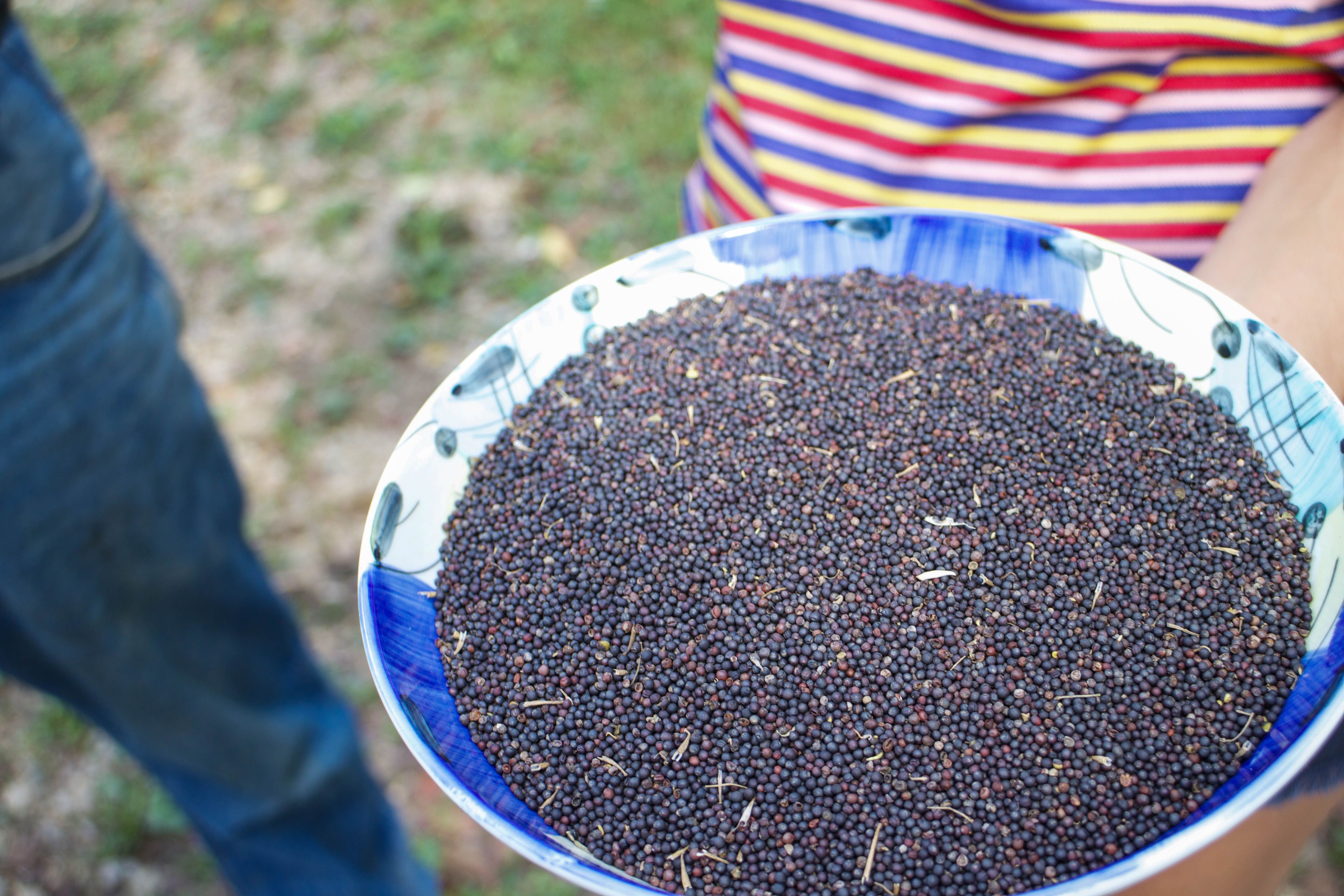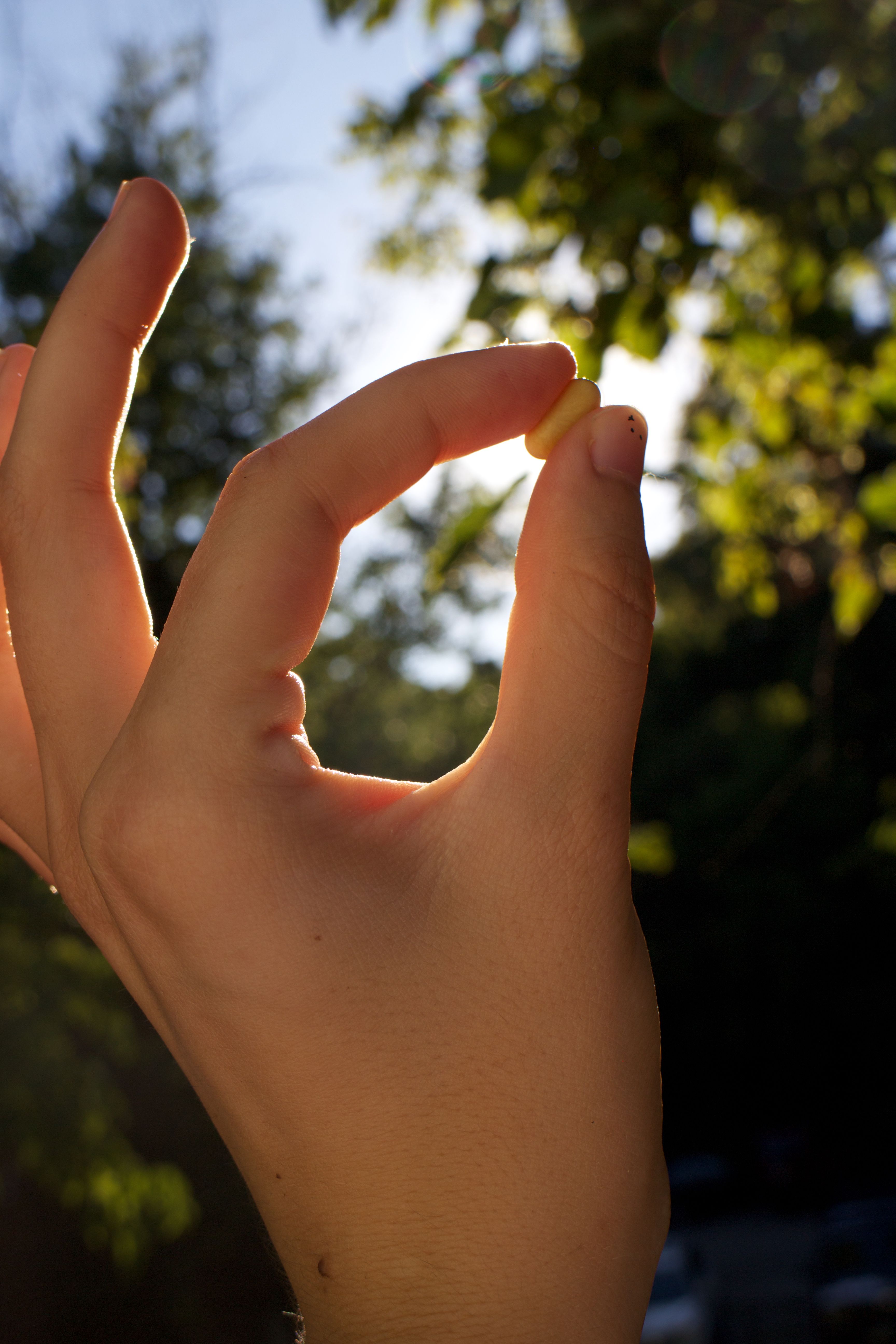The Story
Named for the hills and valleys of Appalachian Ohio, Ridge & Hollow was CFI’s regional seed company. Not currently an active social enterprise, Ridge & Hollow arose from our dedication to increasing food security for future generations by supporting the preservation of regionally adapted, open-pollinated seeds.
The Mission
We do not sell Ridge & Hollow seeds, but we continue to support the preservation of Appalachian heritage and locally saved seeds through hosting annual seed exchanges and give aways. Through these events we aim to contribute to a resilient and biodiverse food system that supports seed savers while preserving our cultural heritage.
The Importance

Ridge & Hollow's aim was to offer an alternative to large agribusiness by only purchasing and distributing seed from local seed savers, farmers, and plant breeders, therefore supporting food sovereignty and the local economy.
Eight major companies control 94% of the global commercial vegetable seed market which has contributed to the loss of 93% of seed varieties over the last eight decades. Changes in seed laws, hybridization, increasing influence of agribusiness on seed and farming practices, and reduction in the number of people practicing seed saving have all contributed to an increased need for supporting those who do still practice seed saving.
While we currently do not purchase or sell seeds, we remain committed to supporting local seed savers however we can.
The Benefit
Due to the nature of commercially hybrid seeds, often labeled as F1, the plants produced are often unstable. This means they are less genetically diverse and will need to be repurchased with every new season.
It is easy for climate change and disease to wipe out entire varieties of seeds that our food supply has become dependent on. Open-pollinated seeds come from plants that are freely pollinated by wind, insects, humans, or other natural forces. Because there are no restrictions on the flow of pollen between individuals, open-pollinated plants are more genetically diverse. This can cause a greater amount of variation within plant populations, which allows plants to slowly adapt to local growing conditions and climate year-to-year, making them reliable, unique and cost efficient.
The Partnership
Join us! Contact us to see you can be part of the work to preserve biodiversity and our seed heritage.

-
Open-Pollinated Definition
These types of seeds come from plants that are pollinated (openly) naturally by insects, birds, wind, humans or other natural ways. Due to lack of restriction on the flow of pollination open-pollinated plant varieties are more diverse and have more variation (compared to hybrid varieties ) within their plant populations; this variation allows plants to adapt to local growing conditions and climates. So long as pollen is not shared between different varieties within the same species (think acorn squash and butternut squash) then the seed will remain true-to-type year after year!
-
Heirloom Definition
These varieties come from plants that have a history; commonly passed down within a family or community. All heirloom varieties are open-pollinated however not all open-pollinated varieties are heirloom varieties.
-
Hybrid Definition
Hybrid varieties are the result of controlled pollination; pollen of two different varieties is crossed by human intervention. Hybridization can occur naturally through random crosses but commercially available hybridized seeds are intentionally created for a desired trait. Hybrid seeds are true-to-type reliable for one planting; any seed produced by hybrid plants is genetically unstable and cannot reliably be saved year to year.
Past Seed Varieties and Retail Locations


